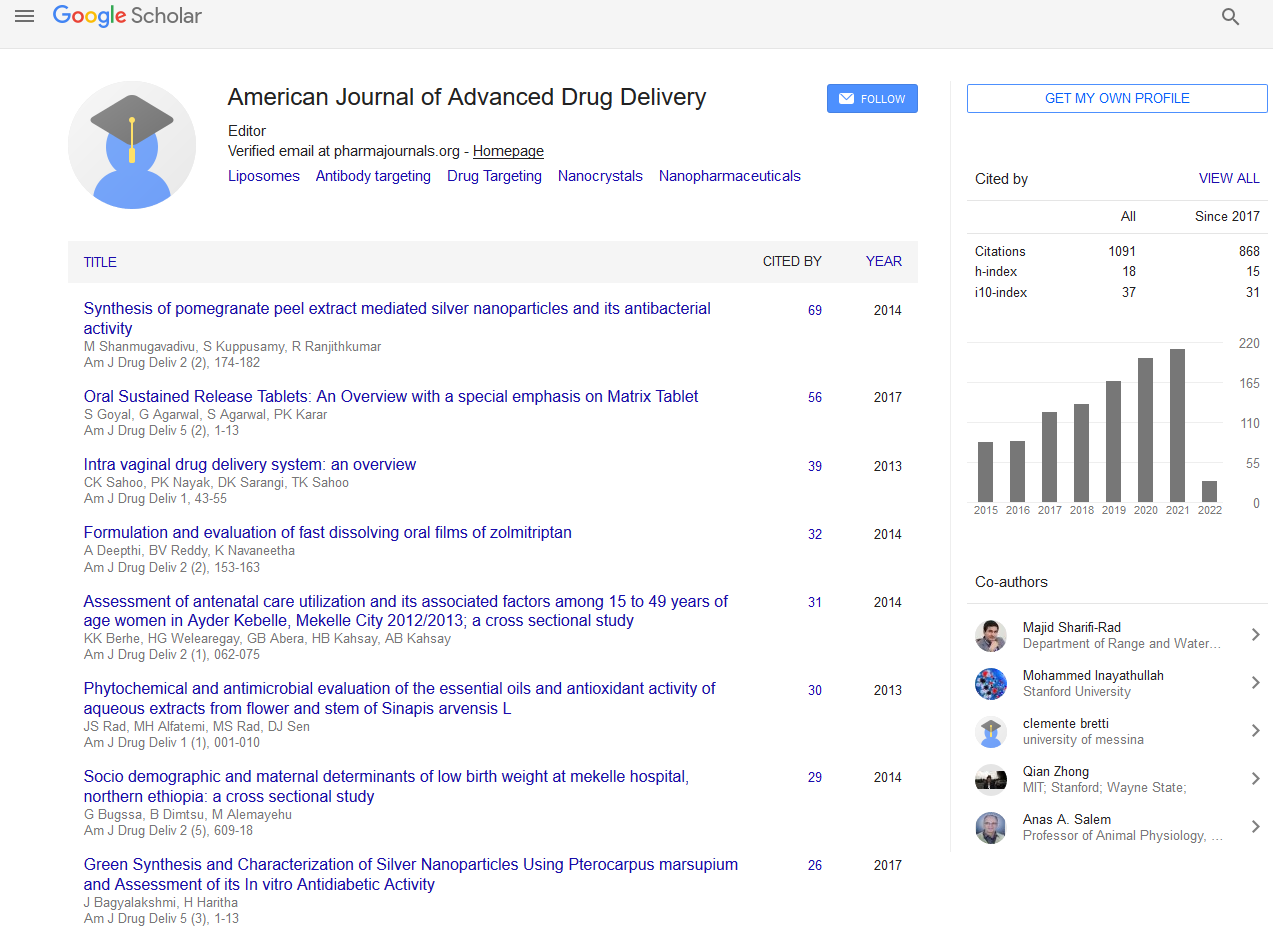Commentary - (2024) Volume 12, Issue 3
Therapeutic advances for the management of adult T cell leukemia: Where do we stand?
Hiba Hajj*
Department of Experimental Pathology, University of Beirut, Lebanon
*Correspondence:
Hiba Hajj,
Department of Experimental Pathology, University of Beirut,
Lebanon,
Email:
Received: 02-Sep-2024, Manuscript No. IPAAD-24-21709;
Editor assigned: 04-Sep-2024, Pre QC No. IPAAD-24-21709;
Reviewed: 18-Sep-2024, QC No. IPAAD-24-21709;
Revised: 23-Sep-2024, Manuscript No. IPAAD-24-21709;
Published:
30-Sep-2024, DOI: 110.36648/2321-547X.12.3.21
Description
Antibody targeting is a groundbreaking approach in
modern therapeutics, particularly in cancer treatment and
immunotherapy. By harnessing the specificity of antibodies to
recognize and bind to particular antigens on diseased cells, this
technique ensures that therapeutic agents are delivered directly
to their intended targets. This precision reduces collateral
damage to healthy tissues, offering a more effective and safer
alternative to traditional therapies like chemotherapy or
radiation. Antibodies, or immunoglobulins, are Y-shaped proteins
produced by the immune system in response to foreign invaders
such as bacteria, viruses, or abnormal cells. Each antibody has
a highly specific region that binds to a corresponding antigen, a
unique molecule or molecular structure found on the surface of
target cells. This antigen-antibody interaction is a key mechanism
in immune defense, enabling the body to identify and eliminate
threats. In antibody targeting, this principle is applied to therapy.
Monoclonal antibodies, which are lab-produced and designed
to bind to specific antigens, are engineered to precisely target
disease markers, such as proteins overexpressed in cancer
cells. These antibodies can deliver therapeutic payloads directly
to the disease site, thus sparing healthy tissues. Monoclonal
antibodies are the cornerstone of antibody targeting. These are
generated from identical immune cells, cloned from a single
parent cell, ensuring that they recognize the same antigen with
high specificity. Monoclonal antibodies have revolutionized
the treatment of various diseases, especially cancers and
autoimmune disorders, where targeted treatment is essential.
Antibodies can bind to receptors overexpressed on cancer cells,
blocking essential signals for cell growth or survival. When
an antibody binds to an antigen on a target cell, immune cells
such as natural killer cells can recognize the constant region of
the antibody, leading to the destruction of the antibody-coated
cell. This mechanism has been employed in therapies like
rituximab, which targets the CD20 protein on B cells in certain
types of leukemia and lymphoma. Antibodies can also activate
the complement system, a series of proteins that help to destroy
pathogens, leading to cell lysis. This approach enhances the
immune system’s ability to target and eliminate diseased cells.
One of the most promising advances in antibody targeting is the
development of Antibody-Drug Conjugates (ADCs). ADCs combine
the specificity of monoclonal antibodies with the potency of
cytotoxic drugs. The antibody directs the drug to the target cells,
where the toxic payload is released, causing cell death. This
approach reduces the harmful side effects typically associated
with systemic chemotherapy, as the drug is activated only at the
disease site. Another innovative strategy in antibody targeting is
the development of bispecific antibodies, which can bind to two
different antigens simultaneously. This dual targeting increases
therapeutic effectiveness and can bring immune cells into closer
proximity to the cancer cells, enhancing immune-mediated
destruction. Blinatumomab, a ispecific T-cell engager links T cells
and cancer cells by binding to CD19 on B-cell malignancies and
CD3 on T cells, activating T cells to attack the tumor cells.
Conclusion
Antibody targeting represents a paradigm shift in modern
medicine, providing highly specific, effective, and safer treatment
options for a variety of diseases. From monoclonal antibodies
to ADCs and bispecific antibodies, this approach leverages the
natural precision of the immune system to deliver targeted
therapies, offering hope for more effective treatments with
fewer side effects. As research continues, antibody targeting
is likely to play an increasingly vital role in precision medicine,
revolutionizing how diseases are treated.
Acknowledgement
None.
Conflict Of Interest
The author’s declared that they have no conflict of interest.
Citation: Hajj H (2024) Therapeutic Advances for the Management of Adult T Cell Leukemia: Where do we Stand? Am J Adv Drug
Deliv. 12:21.
Copyright: © 2024 Hajj H. This is an open-access article distributed under the terms of the Creative Commons Attribution Li�cense, which permits unrestricted use, distribution, and reproduction in any medium, provided the original author and source
are credited.

